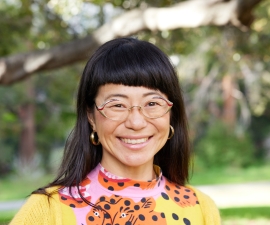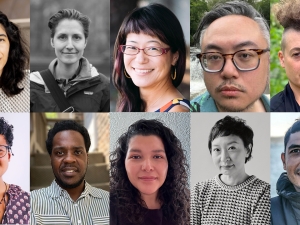

Research Bio
Marié Abe is a scholar of music and sound with ongoing ethnographic commitments in Japan, Okinawa, Ethiopia, and the US. Broadly speaking, her research explores the political and affective affordances of (musical) sounds in contexts ranging from everyday life to social movements, primarily in contemporary Japan. Her scholarship is driven by her interest in exploring how auditory culture produces social space, and how sound’s materiality and ephemerality are entangled with affect and sociality. In other words, she investigates how the culturally particular ways in which people listen to and make (musical) sounds elucidate the relationship between power, human difference, and understandings of space.
Two insights ground both her scholarly and pedagogical work: how engaged and critical listening helps us hear the unevenness and interconnectedness of invisible social relations, silenced memories, and distant places; and how active performance and musical interaction with others can inspire creative social intervention. Methodologically, she takes seriously long-term ethnographic engagements and ethical considerations that come with nurturing sustained and equitable relationships with interlocutors. Her theoretical inspirations are drawn from locally grounded epistemologies gleaned from her interlocutors, vernacular literatures in the field, and multidisciplinary thinkers across cultural anthropology, cultural geography, sound studies, and beyond.
Prior to joining the Berkeley faculty in 2023, Abe taught at Boston University (2011-2023) and Harvard University (2010-2011, 2016). She has held fellowships at the Reischauer Center for Japanese Studies, Harvard University (2010-2011), the Newhouse Center for the Humanities at Wellesley College (2013-2014), and the International Research Center for Japanese Studies in Kyoto, Japan (2018-2019).
Research Expertise and Interest
sound and space, ethnography, human geography, sound studies, music and social movements, affect and the body, Japanese popular performing arts, critical ocean studies, public ethnomusicology

